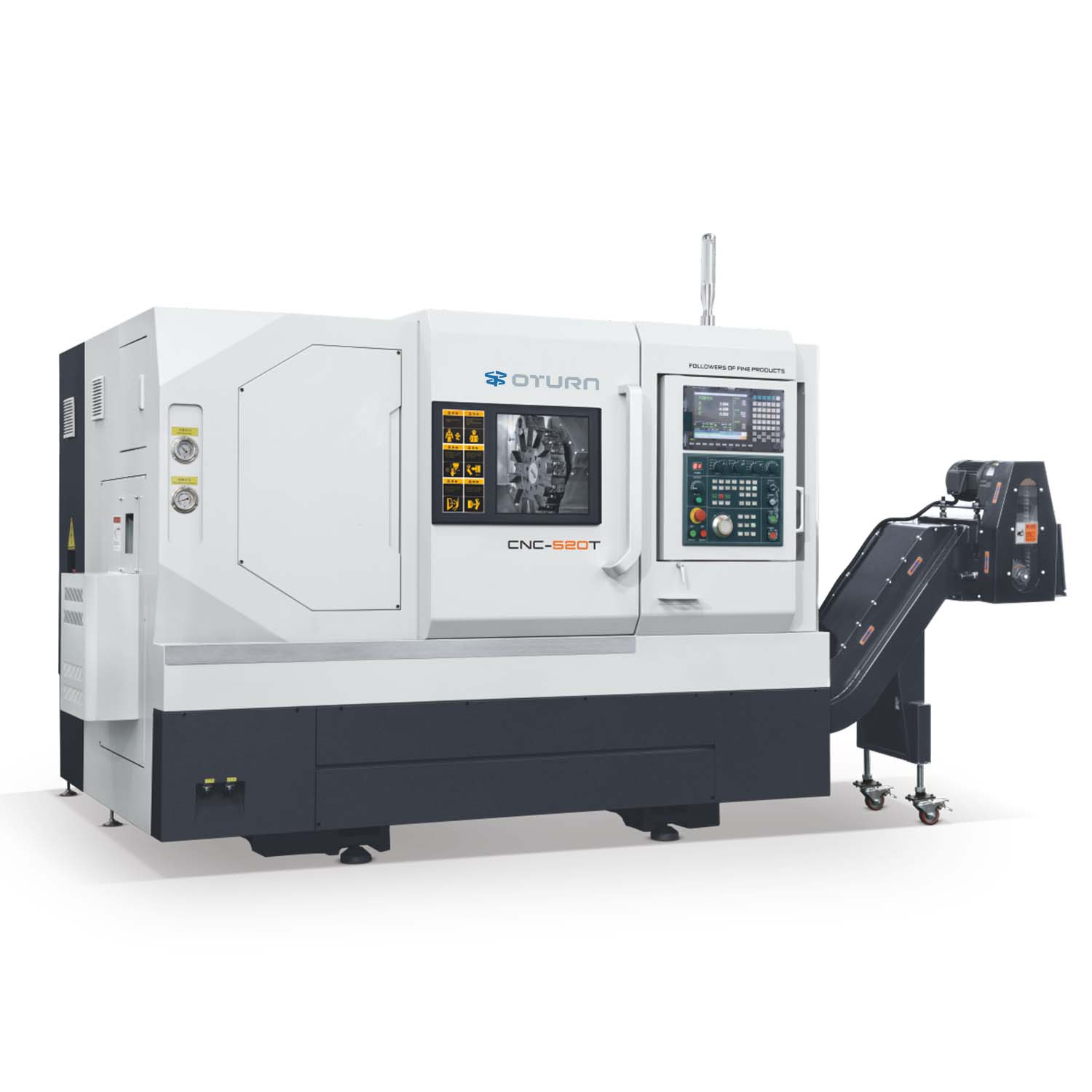In the electronics manufacturing sector, as electronic products evolve toward miniaturization, slimness, and high performance, the precision and quality requirements for component machining continue to rise. Heavy-duty CNC lathes, with their outstanding capabilities, have become indispensable equipment in electronics manufacturing, while also facing diverse and high-standard application demands.
Firstly, machining precision is crucial in the manufacturing of electronic components. Components such as mobile phone chip pins and miniature sensor housings are small and complex in structure, requiring machining accuracy at the micron or even nanometer level. To meet this demand, heavy-duty CNC lathes must be equipped with ultra-high-precision spindle systems, with radial runout controlled to within 0.001 mm, ensuring precise tool positioning during high-speed rotation and minimizing machining errors. Additionally, the feed system needs nanometer-level resolution, combining high-precision ball screws and high-performance servo motors to achieve accurate displacement, satisfying the strict machining standards for complex contours and fine dimensions in electronics manufacturing.
Secondly, the fast product iteration and large production scale in electronics manufacturing impose higher requirements on equipment efficiency and stability. Heavy-duty CNC lathes should feature rapid tool change systems capable of switching tools within seconds, significantly reducing auxiliary processing time and improving production efficiency. Structurally, high-efficiency CNC machines use high-rigidity materials such as premium cast iron or high-strength alloys, combined with optimized rib layouts to maintain stability under heavy turning forces, reduce vibration, and ensure consistent product quality during long continuous machining, meeting the demands of large-scale, high-efficiency production.
Moreover, electronics manufacturing involves processing various special materials, including aluminum alloys, copper alloys, engineering plastics, and new composite materials. For aluminum alloys, heavy-duty CNC lathes need optimized turning parameters, high-speed turning techniques, and specialized tools to reduce turning forces, prevent material deformation, and ensure surface finish quality. When machining engineering plastics, controlling turning temperature is essential to avoid softening or burning, often assisted by air cooling or minimal lubrication technologies. For difficult-to-machine new composite materials, machines must provide sufficient turning power and torque, paired with customized tooling to achieve high-quality processing, meeting the diverse material demands of electronic components.
Intelligence and automation are key to improving production efficiency and quality in electronics manufacturing. Modern heavy-duty CNC lathes integrate intelligent CNC systems that support real-time monitoring and automatic optimization of machining parameters. Sensors collect data on turning forces, temperature, vibration, etc., enabling the system to adjust turning parameters automatically to maintain optimal machining conditions. Meanwhile, automated loading and unloading devices and robotic arms enable fully automated workflows from raw material feeding to finished product unloading, greatly enhancing production efficiency and product consistency while reducing human error.
Environmental protection and energy saving are also critical requirements for heavy-duty CNC lathes in electronics manufacturing. Machines should adopt energy-efficient drive systems and high-performance cooling and lubrication systems to reduce energy consumption. Eco-friendly cooling lubricants with filtration and recycling systems minimize environmental pollution and lower production costs, aligning with green manufacturing and sustainable development goals.
In summary, the electronics manufacturing sector demands heavy-duty CNC lathes with stringent requirements in machining precision, operational efficiency, material adaptability, intelligent automation, and environmental sustainability. Continuous innovation and upgrades in machine tool technology are essential to support the high-quality, high-efficiency development of the electronics industry and to meet the diversified and refined manufacturing needs of future electronic products.
OTURN specializes in efficient metal processing and customized CNC machine tool solutions. Leveraging advanced technology and rich experience, we help clients across industries improve machining efficiency and product quality. Contact us to explore smarter, more efficient manufacturing solutions together.
Post time: Jul-01-2025








